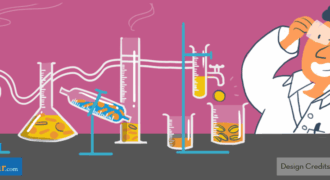The green revolution is here—or so we’re told. Politicians make bold promises, corporations tout their “net-zero” goals, and advertisements overflow with images of wind turbines and electric cars. But beneath the glossy surface of sustainability lies a growing skepticism: is the world truly going green, or just painting itself in eco-friendly colors?
In an era where climate urgency collides with corporate ambition, the line between green energy and greenwashing has never been blurrier. Behind every solar panel and wind farm announcement, there’s a deeper question about motives, accountability, and impact.
The Race to Go Green
Climate change has become the defining issue of our time. Rising global temperatures, record-breaking heatwaves, and devastating floods have pushed nations to act. The 2015 Paris Agreement set a clear target: limit global warming to 1.5°C. Since then, governments and industries have pledged trillions toward renewable energy, electric mobility, and carbon reduction.
The result is a global race to “go green.” Countries like Denmark and Costa Rica are already powered predominantly by renewables. China, the world’s largest emitter, now leads in solar and wind energy installations. In the U.S., the Inflation Reduction Act (IRA) represents the largest climate investment in history, incentivizing green technologies and clean manufacturing.
But ambition alone doesn’t guarantee integrity. As climate pledges multiply, so too do questions about whether these initiatives are transforming the system—or simply polishing its image.
When Sustainability Becomes a Slogan
“Net zero.” “Carbon neutral.” “Sustainably sourced.” These phrases dominate press releases and packaging—but what do they really mean? Too often, they mask a lack of meaningful change.
Take oil giants rebranding as “energy companies” while continuing to invest billions in fossil fuels. Or banks claiming to fund the green transition while financing new coal and gas projects. Even tech companies boasting of “100% renewable operations” often rely on carbon offsets rather than true emission reductions.
This is greenwashing—the practice of making environmental claims that are exaggerated, misleading, or outright false. It’s a PR strategy disguised as progress, and it’s everywhere—from airlines offering “carbon-neutral flights” to fast-fashion brands promoting “eco-friendly” collections made from synthetic fibers.
The problem isn’t just ethical—it’s systemic. As long as sustainability is treated as a branding exercise rather than a transformation strategy, the world risks losing precious time in the fight against climate change.
The Policy Paradox
Governments face a similar contradiction. Every major economy champions clean energy publicly, but many continue to subsidize fossil fuels behind the scenes. According to the International Monetary Fund (IMF), global fossil fuel subsidies—both direct and indirect—exceeded $7 trillion in 2023.
Meanwhile, political pressure, energy security fears, and corporate lobbying complicate climate commitments. The European Union’s ambitious Green Deal is under strain from rising energy costs and political backlash. In the U.S., partisan divisions threaten the long-term survival of renewable incentives. Even as leaders pledge decarbonization, new oil fields are approved, pipelines built, and coal plants revived in developing economies.
The truth is uncomfortable: global energy policy remains a tug-of-war between environmental responsibility and economic pragmatism.
Corporate Commitments: Ambition Meets Accountability
To their credit, many corporations are making genuine strides toward sustainability. Tesla revolutionized electric mobility. Microsoft pledged to be carbon-negative by 2030. IKEA and Apple are redesigning supply chains to minimize waste and emissions.
Yet, a troubling gap persists between pledge and performance. A 2023 report by the Net Zero Tracker found that less than 5% of corporate net-zero commitments meet basic standards of credibility—such as independent verification or interim targets.
Even industries central to the green economy—like renewable manufacturing and electric vehicles—are not without controversy. Mining for lithium, cobalt, and nickel, crucial for batteries, often occurs under poor labor conditions and with severe environmental impact. The irony is sharp: in trying to save the planet, we may be harming parts of it.
The Carbon Credit Conundrum
One of the most popular tools in the sustainability toolkit—carbon offsets—has come under heavy fire. The concept is simple: companies or individuals can compensate for their emissions by funding reforestation, conservation, or renewable projects elsewhere.
In theory, it’s elegant. In practice, it’s flawed. Investigations have revealed that many offset projects fail to deliver measurable reductions. Some forests touted as “protected” have been logged; some renewable projects would have existed anyway. Critics argue that offsets allow polluters to buy moral absolution without cutting actual emissions.
The global carbon market, worth over $900 billion, risks becoming a financial instrument rather than a climate solution—proof that even well-intentioned mechanisms can be twisted by profit motives.
The Rise of Climate Accountability
Still, change is coming. Regulators and investors are cracking down on greenwashing. The European Union has proposed strict guidelines requiring companies to substantiate environmental claims. The U.S. Securities and Exchange Commission (SEC) is finalizing rules mandating climate-risk disclosures for publicly traded firms.
Consumers, too, are becoming climate detectives. Social media activism, watchdog journalism, and data transparency have made it harder for corporations to hide behind vague promises. In the age of instant information, authenticity has become the new currency of credibility.
Even financial markets are responding. ESG (Environmental, Social, and Governance) investing—once a niche—has gone mainstream, with trillions of dollars allocated to companies demonstrating real sustainability metrics. But as the sector grows, it too faces scrutiny over loose standards and inflated claims.
The Role of Innovation
While policy and accountability shape the framework, technology is driving the transformation. Breakthroughs in green hydrogen, carbon capture, fusion energy, and advanced battery storage are rewriting what’s possible. The cost of solar and wind has plummeted by over 80% in the past decade, making renewables the cheapest energy source in much of the world.
But innovation must be matched with intention. Without ethical governance, new technologies can reproduce the same patterns of inequality and exploitation that fossil fuels once did. The next phase of the green revolution will depend not just on invention—but on integrity.
The Human Element
At its heart, the battle over climate policy isn’t about technology or corporations—it’s about people. Communities worldwide are already living the consequences of a warming planet: farmers facing drought, coastal towns disappearing under rising seas, and urban residents breathing toxic air.
Green energy promises hope—a path to cleaner growth, new jobs, and sustainable futures. But if it becomes a privilege for the wealthy or a marketing tool for the powerful, it will fail its purpose. A truly green transition must be inclusive, equitable, and just.
The Road Ahead
The question is no longer whether we’ll transition to green energy—it’s how we’ll do it, and who it will truly benefit. The battle over climate policy is not about opposing sides of “green” versus “dirty,” but about defining what genuine sustainability means in practice.
Will the 21st century be remembered as the era humanity finally decarbonized—or the one where greenwashing delayed the inevitable?
The stakes couldn’t be higher. The world stands at an inflection point: between cosmetic progress and real transformation. To win the climate battle, we must look beyond slogans and demand substance. Because when the planet’s future is at stake, good PR won’t save us—only good policy will.




